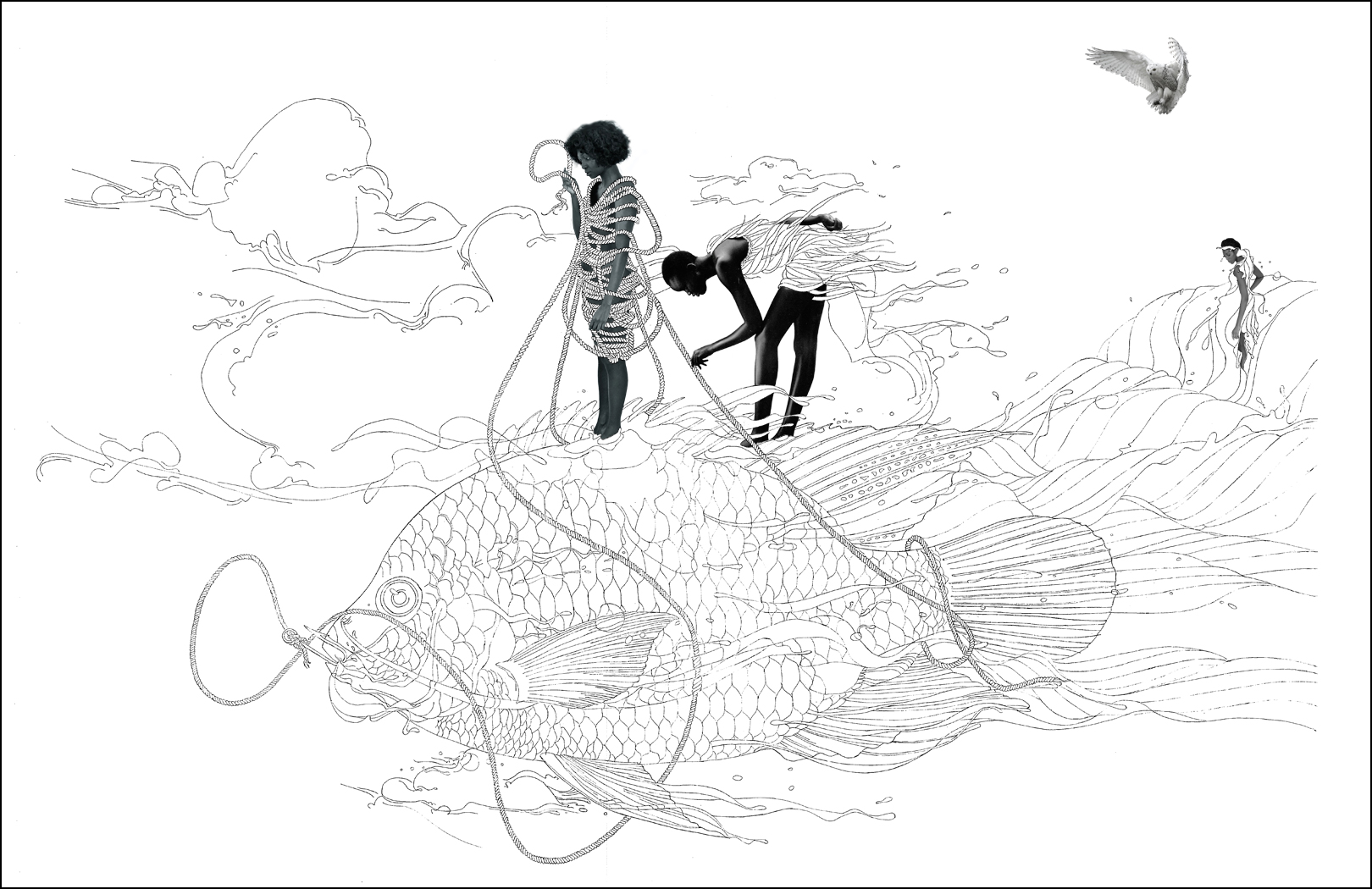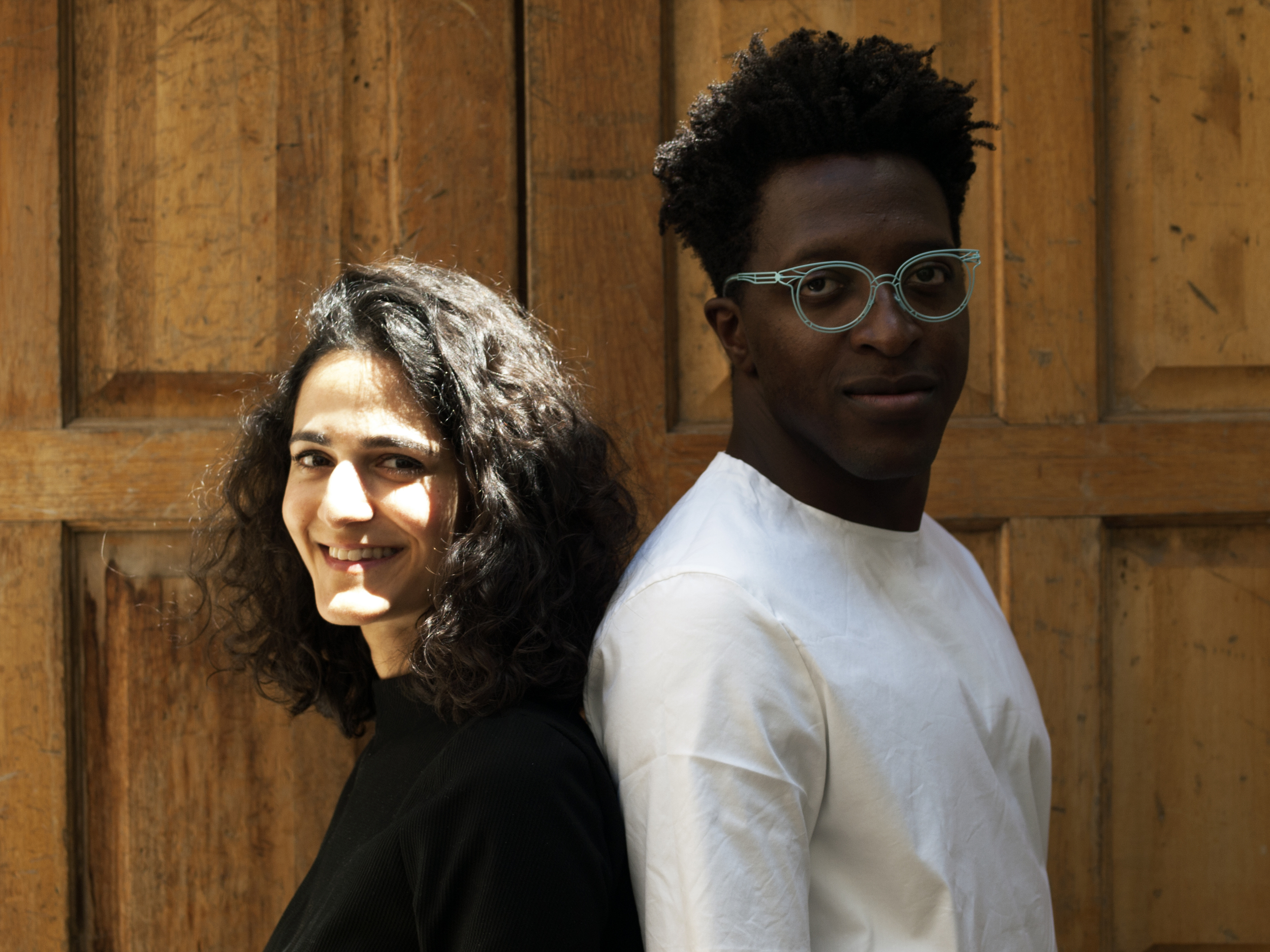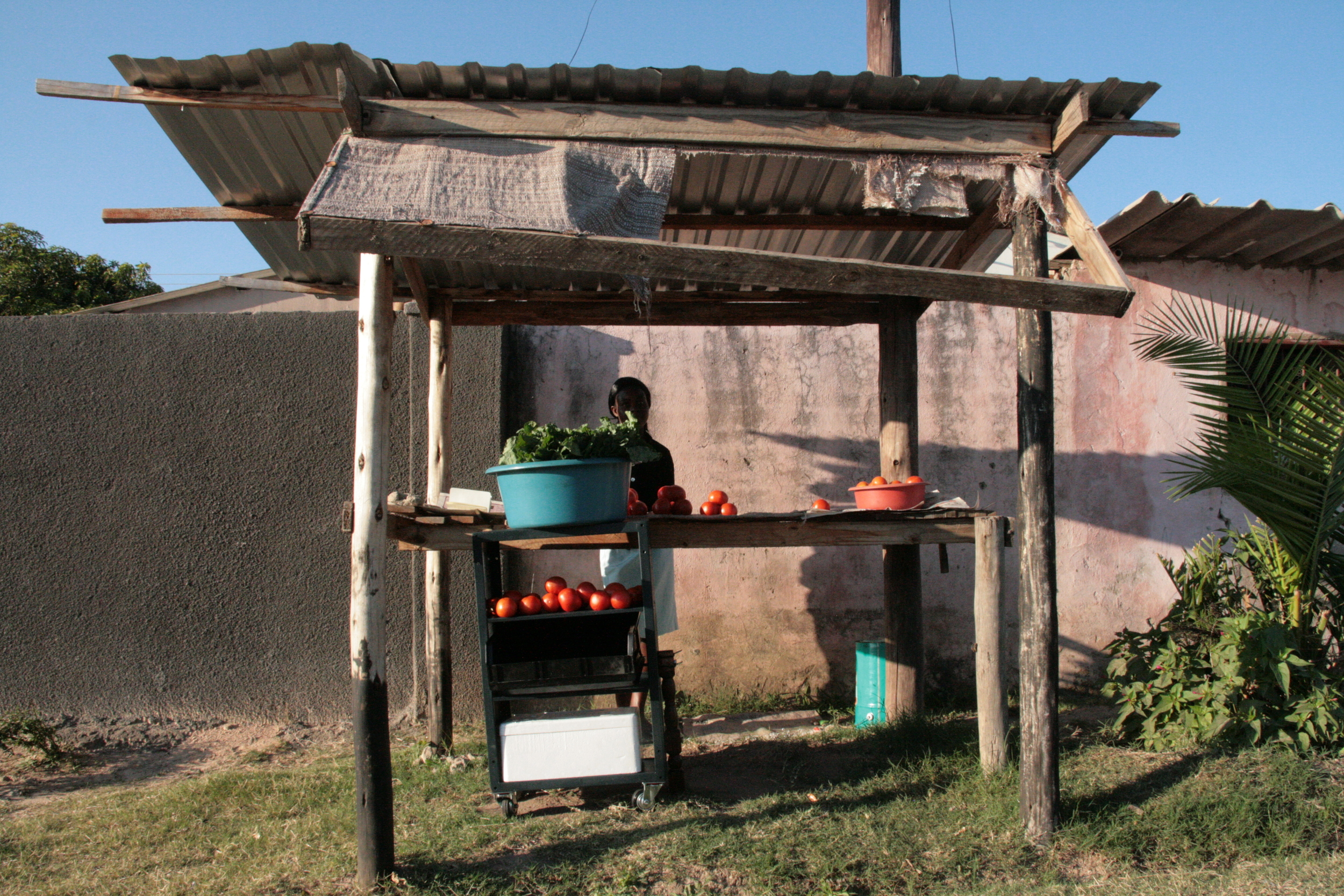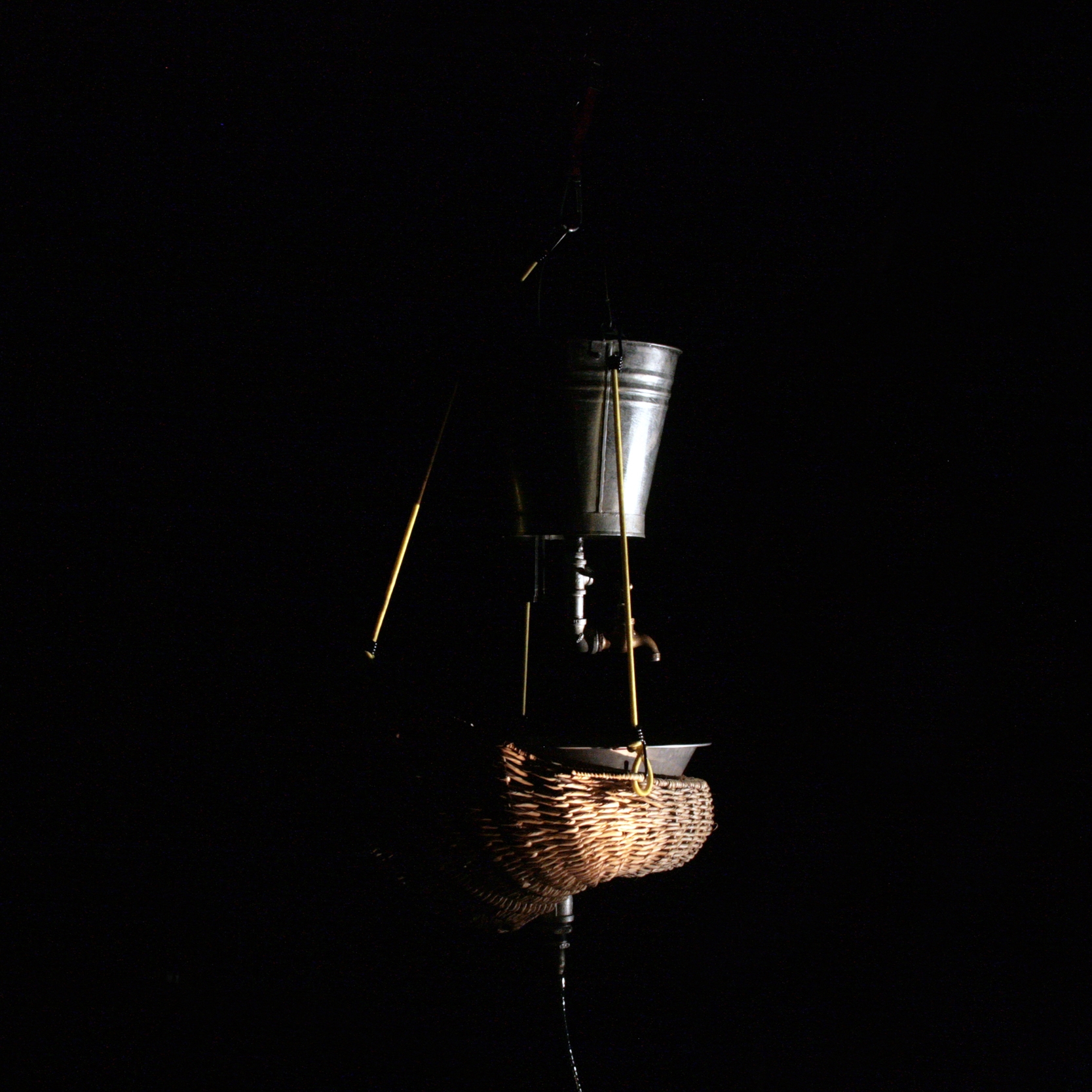A multi-disciplinary design duo traversing urban and social development from London to Harare
Studio [D] Tale is a young design studio working across borders – both geographical and disciplinary – to develop innovation through storytelling. Safia Qureshi, whose family is from Pakistan, grew up in London where she met Zimbabwe-born Maxwell Mutanda, while both were studying architecture at UCL. Qureshi remained in the UK after qualifying, while Mutanda moved to Cape Town, then Harare and is currently based between the two cities. They established their practice in 2013 and have been dreaming up extraordinary concepts together ever since.
“We create projects that are informed by our heritage and shared conversation around making a difference to social and environmental issues,” says Qureshi. “We believe that intellectual and creative currency isn’t centred in one part of the world and that’s why our satellite studios work so well. London gives us access to the mainstream while Max is where the subjects we’re trying to explore are most relevant.”
Spanning architecture, interiors, urban development, product and critical design and communications, Studio [D] Tale’s output is far reaching. “Instead of being commissioned to do one small build after the next, we hit at it from the side and are building up layers of knowledge and research so that we can then approach things on a much larger scale,” explains Mutanda. “We’ve come together to produce work that isn’t a vanity project but has a solid meaning and legacy within greater society.”
One such piece of work is Made In Accra, which addresses the issue of electronic waste, countless tonnes of which are imported to Ghana from Europe and Asia and dumped in the poor suburb of Agbogbloshie where it causes serious pollution. “Thousands of slum dwellers have become informal recyclers extracting materials such as glass, aluminium and copper and selling it for a few dollars a day,” says Qureshi. “We worked with two grad students to come up with ideas for products that add value to this waste, such as bespoke drawing instruments. We want to raise awareness of edumping and promote the idea of a circular economy.”
Similar projects include Techtyle, a low carbon lighting solution aimed at eradicating the use of kerosene-fuelled lamps in off-grid areas of the developing world. And Crossroads, a low-cost, portable commercial unit for roadside vendors that offers clean water, sanitation and renewable energy. “These men and women will sell you airtime, fruit, vegetables, tombstones even. It’s an informal, entrepreneurial sector that’s just as important as big businesses and should be celebrated,” says Mutanda of the concept, which he was invited to present at the 2014 Venice Biennale of Architecture.
"We’ve come together to produce work that has a solid meaning and legacy within greater society"
By contrast, in West London they undertook the residential renewal Peponi House. Their client was raised in Kenya and asked them to imbue her three-story Victorian home with warm memories of her travels as one journeys from room to room. They opened up the structure to transform Peponi (meaning Paradise in Swahili) with natural light, sustainable materials, communal spaces and an elevated rain shower that touches the sky. Moroccan tiles decorate the tropical garden terrace and bespoke pieces by designers such as Eva Sonaike, Yinka Ilori and Moroso create a bold interior aesthetic. Once completed, they captured the experiential quality of the flat by making a short film and editorial photo shoot as well as a series of ‘Wish You Were Here’ illustrative postcards, which they showed last year at The Museum of Modern Art Copenhagen exhibition Afrika: Architecture & Identity.
2015 also saw them participate in the Chicago Architecture Biennial and
London Design Festival and they’re currently developing new schemes. Sacred In The City began as a photographic essay on existing church structures in Harare (where congregations often convene in nature rather than chapels) and is now examining other unconventional places of worship around the world. And Dollar Vans is an attempt to create a route map for the mini busses most commuters use to get around Harare. “They are the truest form of shared economy. The bus owners drop you off anywhere you want on route and it’s the same in cities across the continent. So if you could map out different routes, amenities and landmarks, you could approach city councils to facilitate a ticket system and give greater legitimacy to the service. And as Zimbabwe has a large mobile penetration users could map the network using GPS.”
Studio [D] Tale’s exploratory, conversational ventures push for integrated design and social change for everyone. The duo embraces innovation to champion what Africa’s built environments already offer. “Africa is the most green continent of all. Vernacular buildings from Cairo to the Cape use thatched roofs, earth bricks and natural cladding,” says Mutanda. “There are two schools of thought – either we preserve these ways or transform them using modern technology. But for us it’s a dialogue informed by the context and experimenting in positive ways. The opportunities that present themselves here are far greater and more exciting than anywhere else in the world.”
Visit Studio [D] Tale





